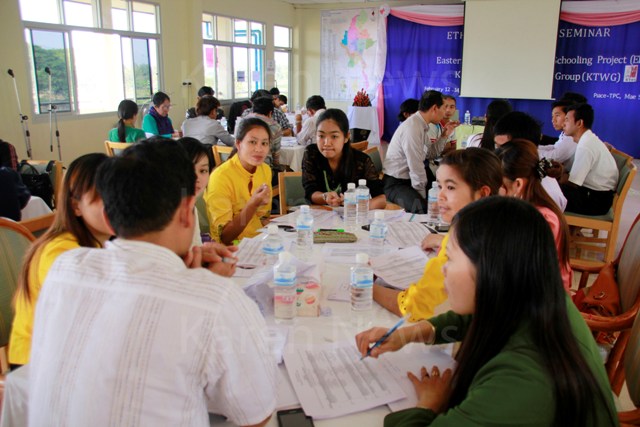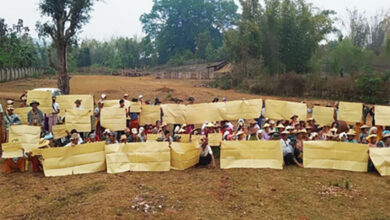New Group To Enshrine Mother Languages in Education

Burma’s ethnic groups have established an education network organization to preserve and protect ethnic minority languages in Burma. The organization, the Myanmar Indigenous Network for Education (MINE), was launched on February 21, to coincide with International Mother Language Day.
“MINE is an exciting development for us. We have struggled for our language and cultural rights for so long and without success. Now with MINE we have the support of our other indigenous brothers and sisters.” Saw Kapi, a spokesperson for the new group, said in a statement to the media.
A seminar was held earlier this month to plan the new organization and was hosted by the Karen Teacher Working Group (KTWG). The meeting saw ethnic leaders from 22 organizations representing 12 ethnic groups attend.
“The recognition of our language and cultural rights is important to us, and is also essential if there is going to be peace and stability in Burma,” Saw Kapi added.
According to the MINE media statement, the group would pursue a “multilingual language policy for the Union” which would include English and Burmese.
Saw Kapi said that learning more than one language would promote a better-educated generation of young people.
“International research clearly shows that Mother Tongue Based, Multi-Lingual Education (MTB-MLE) improves children’s learning in school. It promotes better learning across all school subjects, keeps children in school and improves the quality of second and third language acquisition,” Saw Kapi said.
The KTWG Chairperson, Naw Ler Htu, stressed that it was vital for Burma’s future to enshrine ethnic minority languages.
“With MINE, we can share our experiences and work together across different indigenous groups. We will work together to advocate for culturally appropriate education for our children. Most importantly, schooling for our children in their own languages.” Naw Ler Htu said.
Currently, government policy does not allow for the learning of a mother tongue or use of a mother tongue in the delivery of government services, including education, the MINE statement said.
“Our aim is to ensure that indigenous school children have the right to mother tongue education and to establish a multilingual education system in our country, where diverse ethnic nationalities co-exist,” Saw Kapi concluded.




